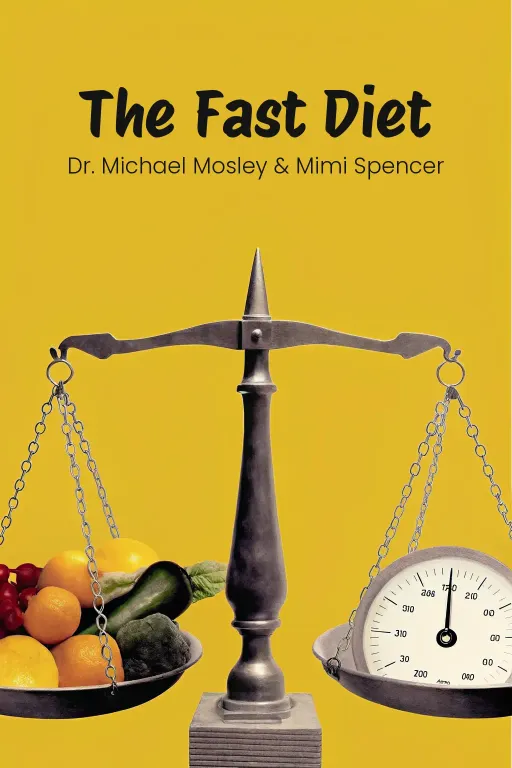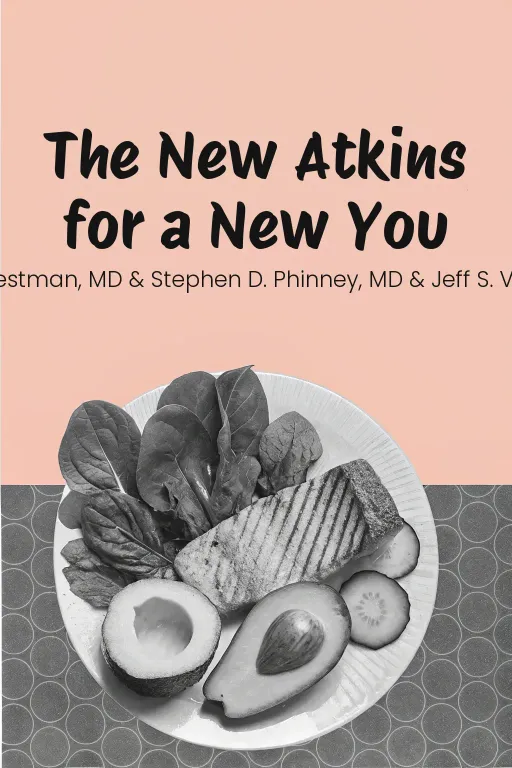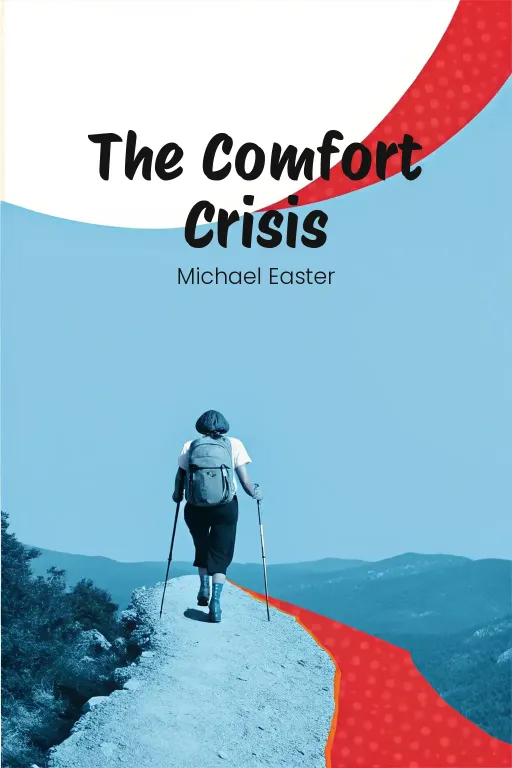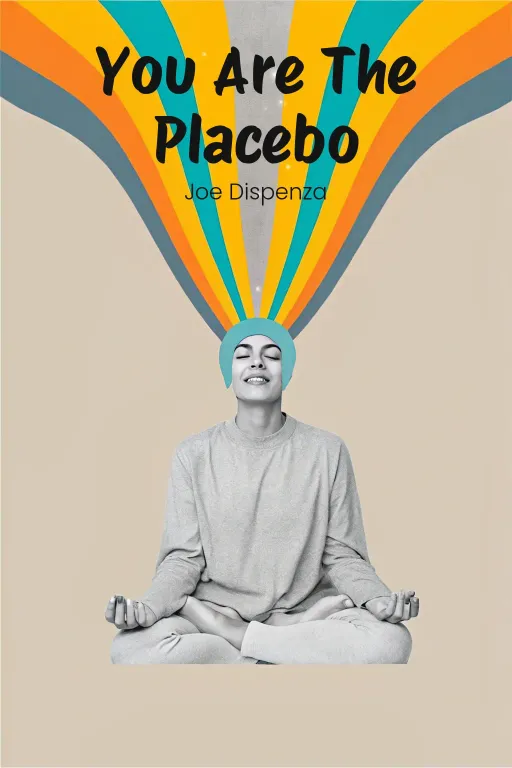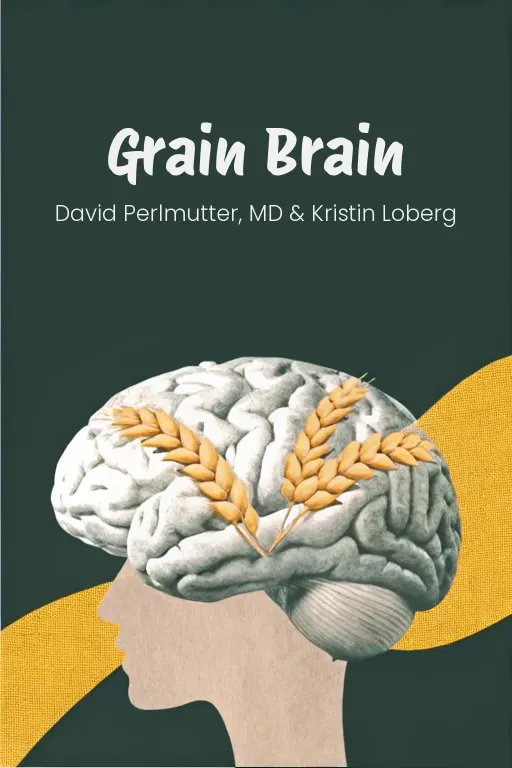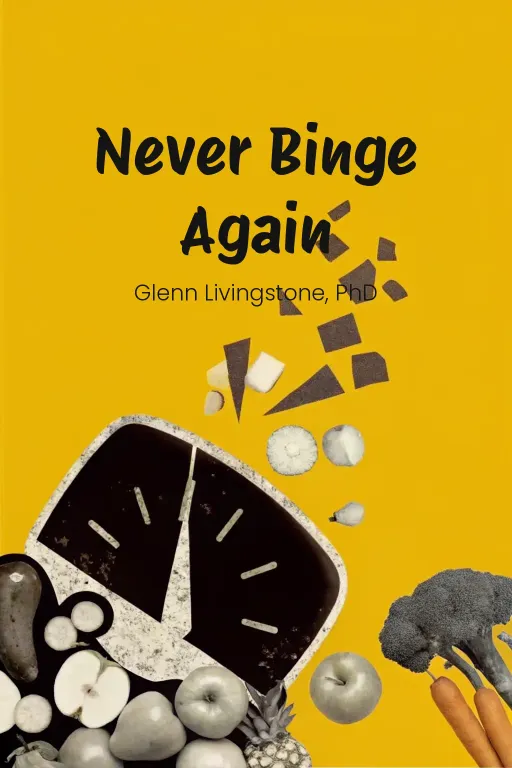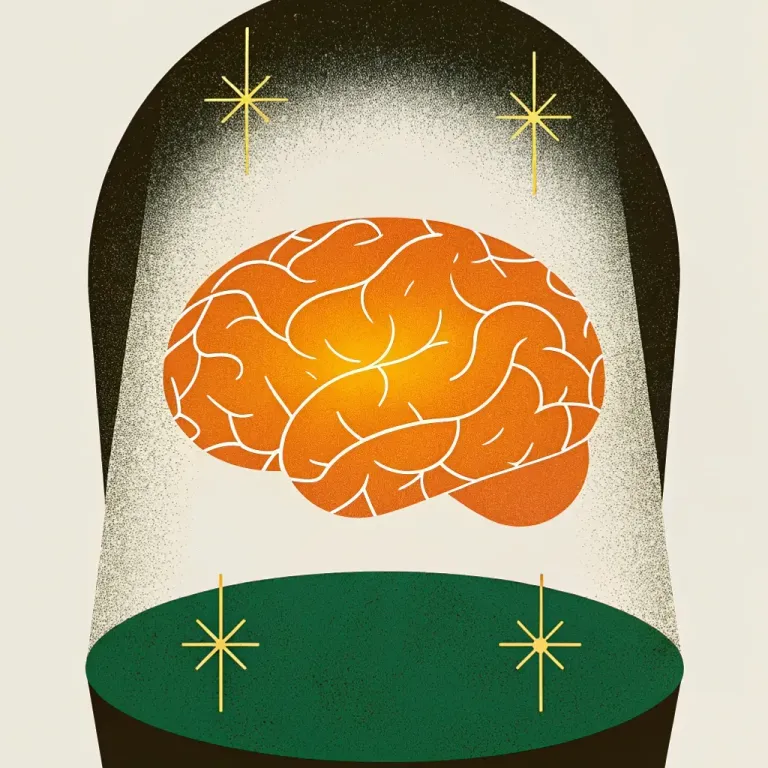
Escape the Drink: Reclaim Your Life
Podcast by Beta You with Alex and Michelle
Control Alcohol, Find Freedom, Discover Happiness & Change Your Life
Escape the Drink: Reclaim Your Life
Part 1
Alex: Hey everyone, and welcome back! Today we're diving into a book that's “really” shaken things up for us: This Naked Mind by Annie Grace. Michelle: Uh oh, here we go. Another book telling us everything we enjoy is terrible for us? Let me guess – ditch the whiskey, embrace the kale smoothie? Alex: Not exactly, Michelle. But if you've ever reached for a beer after a long day, or felt like you “needed” a glass of wine to socialize, this might resonate. Annie Grace basically dissects all the narratives we've absorbed about alcohol – from clever marketing to societal norms, even the little stories we tell ourselves – and reveals how they keep us drinking. Michelle: So, like, a subtle form of brainwashing, but with happy hour instead of government conspiracies? Alex: Almost! But what sets this book apart is her approach. Grace blends neuroscience, her own experiences, and a ton of compassion to help us rethink our beliefs about alcohol. It's about understanding, not shaming. Michelle: Okay, I'm intrigued. So, what's the plan of attack for today's discussion? Alex: We're going to unpack three key themes. First, we will look at how alcohol dependencies are formed—those invisible bonds that are rooted deeply in our minds and are impacted by the culture that surrounds us. Then, we’ll explore the tools Grace offers to break free from those ties, such as practicing self-awereness and using mental imagery. Lastly, we’ll discuss the extensive effects of becoming sober, which include personal growth and questioning the drinking culture. Michelle: Sounds like we're dismantling the whole alcohol industrial complex. Alright, let's get into it and see what Grace has to say, layer by layer.
Understanding Alcohol's Grip
Part 2
Alex: So, as we were saying, the allure of alcohol goes way beyond just willpower or a personal failing. To really grasp it, you've got to look at how deeply it's ingrained in our subconscious. And that starts with conditioning—all those constant messages that paint alcohol as the magic bullet for pretty much everything: stress, awkwardness, boredom... Michelle: Yeah, the old "celebrate with a drink, drown your sorrows with a drink" mantra. So, break down this "conditioning" thing for me. Are we talking, like, “Pavlov's dog”, but with a cocktail instead of a bell? Alex: In a way, absolutely! Conditioning is basically when our environment teaches us to link certain behaviors to rewards. Remember Sarah L.'s story in the book? She saw how her drinking was tied to these deeply ingrained societal cues—like, alcohol equals fun, or it's the best way to unwind. These patterns often take root so early, and in such subtle ways, that we don't even realize we're being programmed. Michelle: I get it. So, when Sarah saw those ads with the impossibly happy, attractive people toasting with champagne, her brain was like, “Hey, I want in on that!” Alex: Exactly! But what she realized—and what Grace really emphasizes—is that those connections aren't real solutions. They're just associations we've built up, and they can be rewired once we become aware of them. Sarah had to take a step back and ask, "Is alcohol actually giving me what I think it is—relaxation, joy—or am I just acting out a script I've learned?” Michelle: And I'm guessing the answer was a resounding, “It's just a script!” Alex: Bingo. That's the first step Grace mentions—recognizing that our drinking is often on autopilot. Once Sarah realized alcohol was more of a bad habit than a source of genuine happiness, she was able to start reframing her thinking. Michelle: Okay, so we're essentially talking about mental rewiring. But what about when you know drinking isn't good for you, and you still reach for that drink? Like, that inner voice is screaming, “This is a bad idea,” but you pour another one anyway? Alex: Ah, that's cognitive dissonance—that psychological war between what we know and what we do. Grace illustrates it brilliantly with Bernie M.'s story. He kept telling himself alcohol was his "comfort," even as it was destroying his health and relationships. It's that constant contradiction: knowing the long-term harm, but still choosing the short-term fix. Michelle: So, Bernie's like Sisyphus, but instead of a boulder, he's rolling a keg uphill while simultaneously telling himself it's "helping." Alex: That's a pretty apt analogy! Bernie’s turning point was when he stopped justifying his drinking. He allowed himself to actually feel the dissonance, instead of avoiding it. He realized alcohol wasn’t helping him cope—it was actually making everything worse. That realization opened the door for him to question those internal narratives and start making a change. Michelle: Okay, so dissonance is like a crack in a dam, and awareness is what makes the crack bigger until the whole thing bursts. But what about the whole "biology" side of things? We've talked a lot about the mind, but surely the body has its own way of keeping us hooked, right? Alex: Absolutely. Alcohol's physiological effects reinforce that mental dependence, creating a really tough cycle to break. Let's take dopamine, the brain's reward chemical. When you drink, your brain gets a surge of dopamine, and you feel great—for a little while. But over time, your brain adapts by creating fewer dopamine receptors. So, what happens? You need more alcohol to get the same buzz, and that's how tolerance develops. Michelle: Right. And then when you don't drink, it's like your brain goes on strike—no dopamine, no good vibes, just withdrawal symptoms. Am I on the right track? Alex: Exactly! Those withdrawal symptoms—the shakes, the nausea, the anxiety—they drive people to drink again, and not even for pleasure, but just to stop feeling awful. Annie Grace herself talks about waking up after a binge, feeling shame and guilt, and then immediately reaching for another drink to numb those exact feelings. It's definitely a vicious cycle where the solution seems to be the very cause of the problem. Michelle: Sounds like the world's worst payday loan: you "borrow" some good feelings now, but you end up paying them back with insane interest—physical discomfort, mental fog, emotional turmoil. Alex: Precisely. And to top it all off, you've got societal norms piling on the pressure. Drinking isn't always just a personal choice—it's often a social expectation. Grace talks about how characters like Emily feel pressured to drink just to fit in, even if they don't actually want to. Michelle: I get that. Show up to a party with a sparkling water, and people look at you like you've just landed from Mars. Alex: Right? Emily's story is a good reminder of how cultural norms strengthen these subconscious and physiological patterns. They keep people trapped, afraid that not drinking will make them the odd one out or completely destroy their social life. Michelle: So it's like you're trapped in a maze, with walls built from societal expectations, your brain's bad habits, and your body's cravings. How do you even begin to escape? Alex: Awareness. That's Grace's core message. You can't break down those walls until you actually see them for what they are. And she provides tools to do exactly that—examining those subconscious beliefs, questioning the cultural myths, and then using repetition to shift your mindset. Michelle: Repetition? You mean, just telling yourself over and over, “Alcohol is not my friend, alcohol is not my friend”? Alex: More or less! It's about retraining your brain by consistently reinforcing new narratives. So instead of thinking, “I need a drink to relax,” you consciously replace it with, “Alcohol is actually making my stress worse.” The goal is to reshape those mental pathways that keep you tied to alcohol, one belief at a time. Michelle: That makes sense. It’s like learning a new song on the guitar—your fingers keep wanting to play the old chords until you practice enough to lock in the new ones. Alex: Exactly, Michelle. And once that muscle memory takes hold, it gets easier to view alcohol for what it really is—a habit you can unlearn, not a fundamental necessity you can't live without.
Strategies for Transformation
Part 3
Alex: Okay, so having looked at what drives dependency, we're now diving into how to actually break free from those patterns. Because knowing why you're stuck is only half the battle, right? You need the tools to climb out. Grace offers some really actionable strategies, like mindfulness, visualization, and reframing how we think about sobriety, as stepping stones to real transformation. Michelle: Right, so we're shifting from "Here's why you're stuck in the mud" to "Here's your ladder out." But mindfulness and visualization… aren't those a bit… woo-woo? I mean, are we talking scented candles and meditation retreats here? Alex: Not exactly, Michelle. Let's start with mindfulness, which Grace presents as a way to ground yourself in the present. It's about observing your thoughts and feelings without judgment, learning to recognize – and then interrupt – the unconscious patterns that fuel those drinking habits. Michelle: Okay, but how does that actually help someone reaching for their third drink after a brutal day? Because in that moment, "being present" is probably the last thing on their mind. Alex: Exactly – and that's why mindfulness can be so powerful. Take Theresa G.'s story from the book. She used to think quitting was all about willpower – a constant, exhausting "no." But with mindfulness, she realized her cravings weren't random. They were responses to specific triggers: stress, boredom, even the sound of a cork popping. Recognizing those triggers as they popped up allowed her to pause, breathe, and make a conscious choice, instead of just reacting automatically. Michelle: So instead of just white-knuckling it, she's… observing the cravings like they’re just clouds floating by? Alex: Precisely. It’s a subtle but incredibly effective shift – building awareness of those fleeting urges instead of getting completely swept away by them. Theresa even used simple techniques, like guided breathing exercises and journaling. Consistently applying this allowed her to uncover patterns in her thoughts and habits, which helped her break those old, conditioned reactions to stress. Michelle: I see how identifying the trigger gives you some control back – it’s like shining a light on something; it’s harder for it to ambush you. But that sounds… intense, constantly monitoring your own brain. What if mindfulness alone isn't enough? Alex: That’s where visualization comes in. Grace suggests using it to reshape how we see alcohol and to imagine a fulfilling life without it. Instead of dreading social situations without a drink in hand, you picture yourself enjoying them – engaging fully, feeling confident, maybe even having more energy without that alcoholic haze. Michelle: Oh, like mental rehearsal? Athletes do that before big games – imagining the winning shot or the perfect landing. But does it really translate to sobriety? Alex: The book shares a great example – Katy F. She was skeptical at first, but she committed to visualizing a party where she wasn’t drinking. She pictured herself walking into the room, smiling, holding a sparkling water, and genuinely connecting with people, without needing alcohol to feel comfortable. Over time, this mental rehearsal shifted her mindset. When real-life parties came around, the anxiety wasn’t as intense; she felt prepared. Michelle: So, she essentially trained her brain to see “party Katy” but with sparkling water instead of wine. It’s like editing the movie of her life, scene by scene. Alex: Exactly! And that “editing” actually has a basis in neuroscience. When we vividly imagine a scenario, we reinforce the neural pathways associated with that behavior. We’re priming our minds to think, "This is who I am now. This is what I'm capable of." Over time, those visualized scenarios feel less like a dream and more like reality. Michelle: Okay, I see the potential. Rewriting your mental movie sounds tough if your script is full of plot twists like guilt or shame. What if someone feels trapped by their past mistakes? Alex: That's where decisive action comes in. Grace encourages shifting your focus – from fearing failure to embracing control, even in small ways. Decisions don’t have to be huge at first. For example, Elizabeth R. started by simply committing to one alcohol-free weekend. She built from there, realizing that each small step chipped away at the shame she'd been carrying. Michelle: So instead of running a marathon, she's just focusing on completing the first mile. Makes sense – break it down into manageable chunks. Alex: Right. It’s not about perfection; it’s about building momentum. Elizabeth's small victories gave her the confidence to tackle bigger changes later on. By framing sobriety as a series of choices rather than an all-or-nothing leap, she reclaimed her sense of agency. Michelle: Alright, I'm tracking. So, we're using mindfulness to identify our triggers, visualization to reshape our mindset, and decisive action to take those first steps. But there’s still the big social question: even if you're sober, society keeps blasting messages that scream, "Life’s boring without booze!" How do you fight against that? Alex: By reframing abstinence itself – not as a sacrifice, but as a source of empowerment. This is one of my favorite parts of Grace’s perspective. Society often portrays sobriety as this dull, joyless state. What if we flipped that narrative? Louise P. shared how she used to dread the idea of life without alcohol, thinking it meant giving up fun, connection, even her sense of self. But once she reframed abstinence as an act of personal and professional empowerment, she felt liberated rather than restricted. Michelle: Let me guess – Louise didn’t just survive sobriety; she thrived. Morning clarity, deeper family moments, all the Pinterest-worthy stuff? Alex: Pretty much. But the key isn’t just the benefits – it’s the reframing. Louise stopped seeing herself as someone sacrificing pleasure and started seeing herself as someone actively choosing a better life. From that perspective, sobriety became a statement of self-respect, not self-denial. Michelle: So, instead of "I can't have this," it's more like, "I don't need this anymore." That's… powerful. It reframes abstinence as being in control – as true freedom. Alex: Exactly! Which is, perhaps, the book’s central message: the power to change isn’t about restriction; it’s about reclaiming your life, one intentional step at a time.
Redefining Identity and Societal Shifts
Part 4
Alex: So, with these tools, we can really explore how sobriety affects our identity and how we fit into society, right? It's not just about quitting drinking, it's about figuring out who we are without it and reshaping the world around us! We wrap up by broadening our perspective from individual recovery to societal change, going from dependency to freedom. Michelle: Ah, okay, so we're zooming out from personal growth to tackling the bigger picture, huh? Identity, culture, society—the whole shebang? Alex: Precisely! Sobriety starts as a personal choice, but inevitably, you have to face the stories that shaped your drinking in the first place. And when enough people question those stories, societal norms can “really” shift. Let's start with redefining identity—how quitting alcohol can be an act of self-discovery, really. Michelle: Self-discovery, huh? So, people come to realize they're more than just someone who needs a drink to… get through a social event, I guess? Alex: Exactly! Take Katy F., for example. Ditching alcohol gave her the clarity to see what “really” mattered. Before, she thought drinking was the glue holding her social life together. But once she stopped, she realized it was actually holding her back from making real connections. She swapped wine for sparkling water and, instead of feeling left out, found deeper relationships. Michelle: So, it's less about "losing a crutch" and more about "finding your own balance?" I can relate to that socially, I guess. But isn't it terrifying at first? I mean, people might be scared their whole identity will just vanish. Like the party animal suddenly becomes a wallflower—or worse, invisible! Alex: That's such a good point, Michelle. It is disorienting at first because drinking has often been tied to how others see us, or how we see ourselves. Katy had to face that fear head-on. But what she found—and what Annie Grace talks about—is that sobriety doesn't erase your personality, it actually amplifies it. By peeling away that layer, you get to rediscover the authentic you underneath. Michelle: Alright, so sobriety turns "liquid courage" into solid confidence. But—and this is a big but—what happens when society keeps saying, "Drinking equals fun, success, connection"? Doesn't that make it hard to stay sober? Alex: Definitely, and that leads us to questioning cultural norms. We live in a world where drinking is linked to celebration and even who you are. Champagne toasts at weddings, beer at sports games—it's everywhere! Grace talks about people like Emily, who felt left out just for not having a drink at the bar. That pressure is real, and it's designed to make you fit in. Michelle: Right. It's "peer pressure" in high school, but it never “really” stops, does it? I mean, turning down drinks at networking events or a friend’s party can feel like a rebellion. Alex: Exactly. Emily’s story shows how that pressure can create inner conflict. She went along with the drinking culture, but felt disconnected. That's common for people questioning their relationship with alcohol—and it shows how ingrained these norms are. It's not just about feeling judged, it's also about feeling like you'll miss out if you don't join in. Michelle: Isn't that the kicker? The idea that drinking makes you belong? People fear being the "weird one" with a soda, like it makes them less… included. Seems like the “real” issue is the script we're all given: drink to fit in. Alex: Totally! Rewriting that script is key. Grace suggests creating environments where alcohol isn't the main thing—like hosting alcohol-free social events or having more inclusive options. When you remove the pressure, people can connect on their own terms, without needing a drink to feel like they belong. Michelle: Okay, that's fair. But what about the bigger picture? Can changing a few parties “really” change decades of liquor ads and wedding traditions? Feels like trying to scale Mount Everest with a spoon. Alex: It's a good point, and culture doesn't change overnight. But Annie Grace talks about the ripple effect of small changes. Think about public health campaigns or alternative celebrations—a wedding with mocktails instead of champagne, for example. As communities make these changes, they remove the stigma around sobriety and make it easier to talk about alcohol. Michelle: So, start small: make new traditions, build inclusive spaces, and hopefully, that cracks the larger drinking culture. Do we get pushback from people who like things as they are? Alex: Absolutely. There's always resistance—whether it's from industries that profit from drinking or people who cling to the identity they've built around alcohol. But the more we accept different views, the more inclusive our culture becomes. Grace argues that this benefits everyone—drinkers and non-drinkers alike—because it gives people the freedom to choose, rather than feeling forced to follow one path. Michelle: I'll admit, I'm warming up to the idea that changing the cultural narrative isn't about banning alcohol, it's about creating balance. But what does a society like that even look like? Alex: Imagine a world where alcohol is just another option, not the default. Socializing without that pressure would be amazing—people could genuinely enjoy themselves without having to drink. It could lower dependency rates, create healthier relationships, and make social spaces more inclusive. Michelle: So, it's about widening the lens—not getting rid of alcohol but leveling the playing field. I can see how that leads to deeper connections, too. Fewer hangovers and more clarity sounds like a win-win. Alex: Exactly! And Grace’s main message is that we don’t have to accept a society that normalizes dependency or marginalizes sobriety. By rethinking alcohol’s role, we empower individuals to be more present, more authentic, and more connected—to themselves and their communities.
Conclusion
Part 5
Alex: Okay, so to bring it all together, we've really looked at how alcohol gets ingrained in our subconscious, right? Through conditioning, through cultural norms. It sets up this cycle of dependency that's almost invisible until you actually start questioning it. Annie Grace’s “This Naked Mind” just really unpacks all of these mechanisms and gives you some practical tools—mindfulness, visualization, even just reframing your thoughts—to break free. It's not just about giving up alcohol; it’s about, like, taking back control, rewriting your own story, and really seeing yourself and the world in a new light. Michelle: Right, and it's not just about the individual level either, is it? I mean, we also looked at these wider cultural traps, like the whole drinking-equals-belonging thing. Challenging that narrative, I think, really opens you up to a much more inclusive perspective on things. Sobriety, as Grace presents it, isn’t some kind of, you know, bleak sacrifice. It's actually about empowerment. It's realizing that the good stuff—connection, joy, clarity—it was never actually in the bottle to begin with. Alex: Exactly! So, here's what we want to leave you with. Whether alcohol is a big part of your life, or not at all, just take a minute to ask yourself: who are you without all the scripts that society has handed you? If that question makes you feel a little uneasy, or maybe even totally liberated, that’s a pretty amazing place to begin. Right? Michelle: Absolutely. And look, even if it just means opting for a sparkling water instead of that next IPA, it’s about making a choice... your choice.

